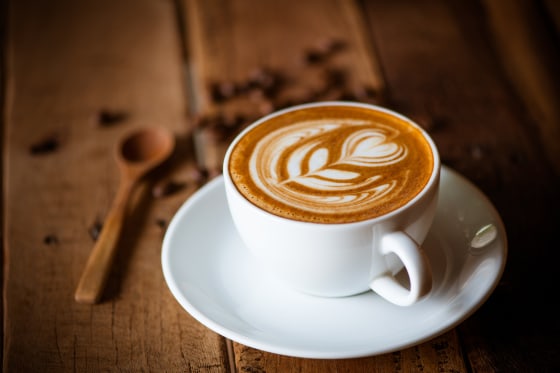National Coffee Day was a few months back, but if you check the numbers, Americans don’t need a day designated to their favorite beverage. A recent survey from the National Coffee Association revealed that 63 percent of respondents had consumed coffee in the past 24 hours. We love it for the flavor, the caffeine boost, and in a big way, the culture that surrounds it.
The coffee scene varies across the country, though, and its no surprise that a recent WalletHub comparison of the 100 largest cities determined that Seattle ranks as the best coffee city, followed by New York and San Francisco. Houston checks in with the lowest average price for a pack of coffee, while Honolulu will put the biggest dent in your wallet for the same. Residents of Fremont, Calif., are willing to spend the most, with the highest average annual spending on coffee, while Clevelanders pay the least on average for their daily caffeine buzz.
Just as spending and pricing on coffee varies widely, so too does the thinking on whether or not its good for us. Headlines are all over the place, one day telling us to drink up, the next scaring us off with links to unhealthy caffeine addictions. “It has been a confusing topic as research often shows different results,” says Ginger Hultin, spokesperson for the Academy of Nutrition and Dietetics and owner of Champagne Nutrition. “A challenge in studying any one food or beverage is that humans consume a large variety of foods and beverages every day. It’s hard to understand what one of them is doing in isolation.”
The pros and cons of coffee
Hultin says that many factors play into whether coffee is a healthy or unhealthy part of your day. “Does a person smoke? Exercise? Do they sleep?” she asks. “What role do individual genetics play in caffeine metabolism and other aspects of coffee drinking?”
Current guidelines on caffeine consumption, says Hultin, cap it at 400 mg per day. “That’s about four cups of coffee,” she says.
Torey Jones Armul, RD, sports dietetics specialist, says that coffee has real health benefits. “Research has shown correlation to reduced risk of depression, lowered oxidative stress and potentially reduced risk of diseases like Parkinson’s, Alzheimer’s, and some types of cancer,” she says. “It is not proven to prevent these conditions, but when combined with a healthy lifestyle, it may help.”
That said, if you’re not a coffee drinker, don’t feel compelled to run out to the nearest Starbucks. “If you don’t like it, that’s fine,” says Armul. “Simple healthy behaviors still trump the singular act of drinking coffee.”
Hutlin adds that coffee has a surprising potential benefit as well: “Though it could act as a mild diuretic, coffee is still mostly water, so you are taking in additional fluids and it does count toward your daily needs,” she says.
Simple healthy behaviors still trump the singular act of drinking coffee.
Torey Jones Armul, RD
While the majority of the news on coffee is good, there are still factors to keep in mind when you’re a consumer. “The caffeine can make you feel jittery and disrupt your sleep,” says Armul. “Listen to your body and experiment with what works for you and what doesn’t.”
There are some people who can drink coffee right on into the evening and generally not have it bother their sleep, for instance. Others will swear that any after noon and their rest will be shot.
Some people develop a mild dependence on coffee, too. “I often hear ‘I just can’t stay awake without it,’” says Hutlin. “To me, that’s a sign of an underlying problem that should be addressed. Fortunately, coffee isn’t like alcohol or addictive drugs because it doesn’t cause physical, social or economic disruption.”
Remember: What you put in your coffee counts
You also need to take into account what and how much you add to your daily joe. “The flavorings, cream and sugar can add up and negate the benefits of coffee,” says Armul. “You also have to be careful not to use it as a replacement for other foods.”
That means not running out the door to work with only coffee to sustain you until lunch. This can lead to nutrient deficiencies and an overload of late-day calories, says Armul.
How do you know if you’re overdoing your coffee habit? The aforementioned disrupted sleep, and headaches or irritability if you miss your daily dose are all signs that you might want to dial back.
If you find you’re struggling with figuring out your sweet spot with coffee and all that you add into it, a trip to a registered dietitian might be helpful.
Each person should figure out their own individual approach to coffee, says Hutlin. But overall, the upsides to coffee consumption mostly outweigh the downsides, so no matter what city you live in, keeping your habit is probably just fine. Says Hutlin: “If my patients enjoy it, I’d like to find a way to keep it in their diet. Coffee is an important ritual for many people.”
DON'T MISS: What nutritionists order at Starbucks
Want more tips like these? NBC News BETTER is obsessed with finding easier, healthier and smarter ways to live. Sign up for our newsletter and follow us on Facebook, Twitter and Instagram.

